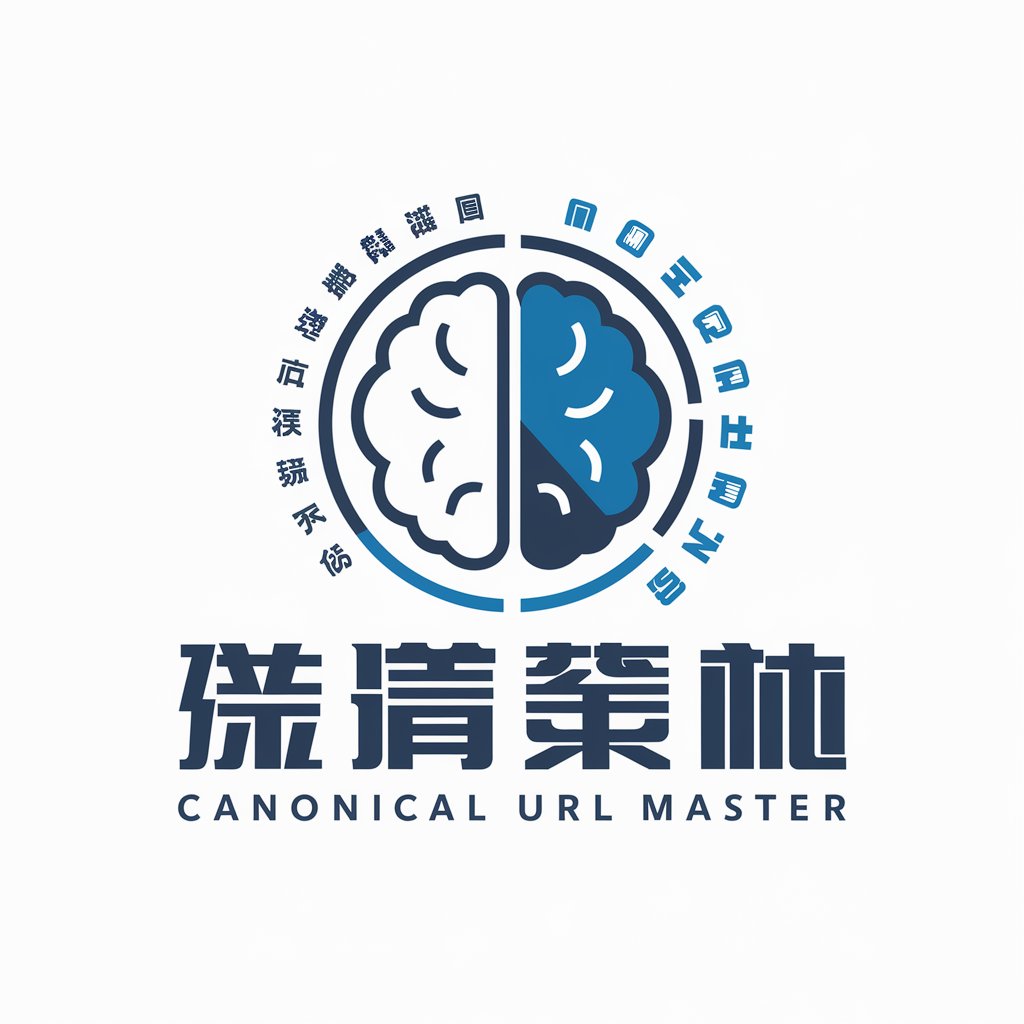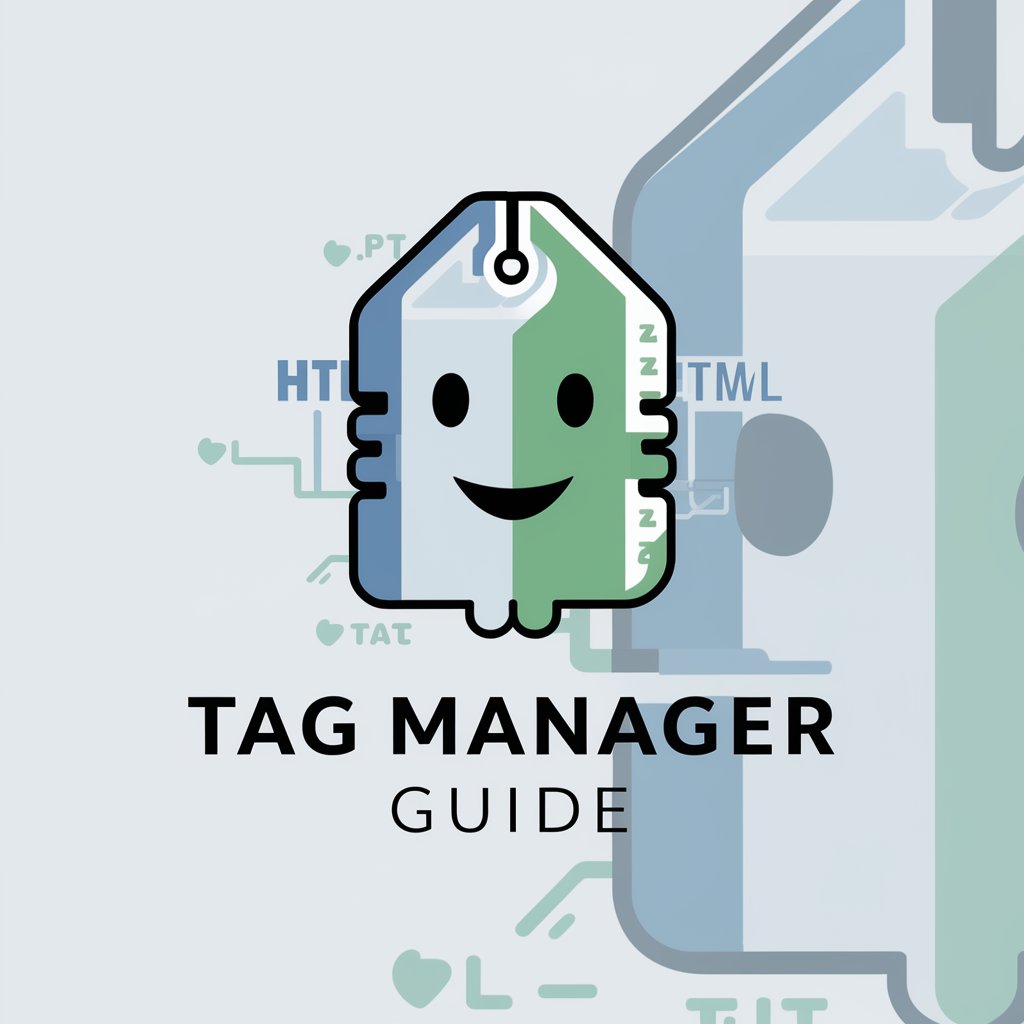
Canonical Tag Master - AI-Powered Canonical Tagging

Hello! Ready to simplify canonical tagging for your website?
Optimize SEO with AI-Driven Canonical Tags
Explain how to create a canonical tag for a URL in simple terms.
What steps should I follow to implement canonical tags on my website?
Describe the importance of canonical tags for SEO and URL management.
How can I accurately generate canonical tags for multiple URLs?
Get Embed Code
Introduction to Canonical Tag Master
Canonical Tag Master is a specialized digital assistant designed to guide users through the nuances of creating and implementing canonical tags in their web development projects. Its primary function is to ensure that webmasters and SEO specialists can accurately denote preferred URLs for similar or duplicate content across their websites, thereby helping search engines understand which version of a content piece should be considered as the authoritative source. This process is crucial for improving SEO rankings, avoiding content duplication issues, and enhancing site visibility. For instance, if a blog article is accessible via multiple URLs due to different navigation paths, Canonical Tag Master can guide the user in marking one of these URLs as the canonical one, ensuring search engines index and rank the designated URL, while the others are seen as duplicates but not penalized. Powered by ChatGPT-4o。

Main Functions of Canonical Tag Master
Generating Canonical Tags
Example
<link rel="canonical" href="http://www.example.com/preferred-url/" />
Scenario
A website owner has posted a blog accessible via multiple URLs. Using Canonical Tag Master, they can generate a canonical tag for the preferred URL to consolidate link signals and improve the page's SEO performance.
Providing Implementation Instructions
Example
Instructions include adding the canonical tag in the <head> section of the HTML of the page that is not considered canonical.
Scenario
A web developer is unfamiliar with the process of implementing canonical tags. Canonical Tag Master offers step-by-step guidance on where and how to place the canonical tag within the website's HTML code.
Clarifying Canonicalization Queries
Example
Explaining when and why to use canonical tags for pages with URL parameters that display content based on user selections.
Scenario
An SEO specialist is unsure whether to use canonical tags for dynamically generated URLs based on user selections. Canonical Tag Master provides clarity, suggesting canonical tags to point to the original version of the page.
Ideal Users of Canonical Tag Master Services
Webmasters and SEO Specialists
Individuals responsible for the maintenance and optimization of websites, especially those dealing with content duplication issues or managing large sites with similar content across multiple pages. They benefit from Canonical Tag Master by ensuring their sites are SEO-friendly and avoiding penalties from search engines for duplicate content.
Content Creators and Bloggers
Creators who publish their content on platforms with multiple access URLs. They can use Canonical Tag Master to identify and tag the preferred URL, ensuring the right page is indexed and gains visibility.
E-commerce Site Managers
Managers of e-commerce platforms that often have multiple product pages with similar content accessible via different URLs. Canonical Tag Master helps them consolidate these URLs for SEO purposes, improving product visibility and search rankings.

Guidelines for Using Canonical Tag Master
Start Your Free Trial
Begin by visiting yeschat.ai to access a free trial of Canonical Tag Master, with no need for a login or ChatGPT Plus subscription.
Understand Your Needs
Identify the specific URLs within your website that need canonical tags. Common scenarios include duplicate content pages, similar pages that you want to consolidate for SEO, or preferred versions of URLs.
Generate Canonical Tags
Use Canonical Tag Master to input your target URLs. The tool will then generate the appropriate canonical tags for each URL, ensuring they are optimized for search engines.
Implement Tags on Your Site
Copy the generated canonical tags and insert them into the <head> section of the HTML for each corresponding page on your website.
Review and Monitor
After implementation, regularly review your site's performance and the impact of the canonical tags on your SEO. Adjust as necessary to maintain optimal search engine rankings.
Try other advanced and practical GPTs
SovereignFool: StressSolutionist
Empower Your Well-being with AI

SovereignFool: IronworkInstructor
Forge Skills with AI-Powered Ironwork Guidance

Flirting Master
Enhance Romance with AI Wit

Superwoman meaning?
Empowering your creativity with AI

SovereignFool: ParentingPartner
Empowering parents with AI-powered guidance

Sales Page Scripts
Craft Compelling Sales Pages with AI

Roast Master
Bringing Laughter to Images with AI

SovereignFool: CulinaryConnoisseur
Explore Global Cuisines with AI

SovereignFool: TechTool Trainer
Empower Your Productivity with AI

SovereignFool: PoliticalPundit
Deciphering Politics with AI

Care
Empowering Your Care Choices with AI

SovereignFool: SudsSage
Craft Soaps with AI-Driven Artistry and Eco-Consciousness

Frequently Asked Questions about Canonical Tag Master
What is Canonical Tag Master?
Canonical Tag Master is an AI-powered tool designed to generate and manage canonical tags for websites, helping to resolve duplicate content issues and improve SEO performance by indicating the preferred versions of similar pages to search engines.
Why are canonical tags important for SEO?
Canonical tags help search engines understand which version of a set of similar or duplicate pages to index and rank. This prevents SEO issues like split link equity and content dilution, thereby improving a site's search visibility.
Can Canonical Tag Master handle complex URL structures?
Yes, Canonical Tag Master is equipped to handle complex URL structures, including dynamic parameters and session IDs, ensuring the correct canonical tags are generated for each unique scenario.
How often should I update canonical tags?
Canonical tags should be reviewed and updated whenever major changes are made to your website's structure, content, or when new pages are added that might create duplicate content issues.
Does Canonical Tag Master support bulk tagging?
Yes, Canonical Tag Master supports bulk tagging, allowing users to input multiple URLs at once. This feature is particularly useful for large websites needing to manage canonical tags efficiently across numerous pages.





